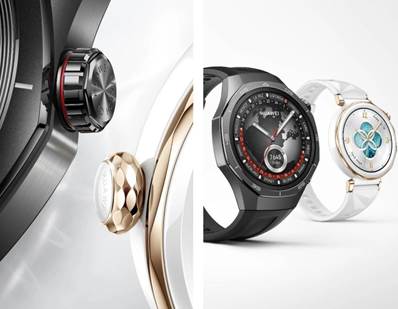How to Pick Your Perfect Smartwatch on Any Budget
Smartwatches
have become everyday companions rather than luxury gadgets. From checking the
time to monitoring health, these devices now integrate seamlessly into our
routines, often replacing several separate tools. People rely on them to track
workouts, manage notifications, and even encourage healthier habits without
needing to pull out their phones every few minutes. Yet, choosing the right
smartwatch is not always straightforward. With so many models on the market,
it’s easy to feel lost in the technical details or overwhelmed by the price
ranges. A good smartwatch should fit naturally into your life without becoming
a source of stress or regret. In this article, we will explore how to select
the perfect smartwatch for your lifestyle and budget.

Define Your Needs and Set Your Smartwatch Budget
Match the Watch to Your Lifestyle
The
first step is thinking carefully about how you intend to use your smartwatch.
Someone who mainly wants quick access to messages and calls has very different
needs compared to a runner who relies on accurate GPS tracking. If you spend
much of your day at a desk, comfort and notification management might be your
top priorities. For outdoor enthusiasts, features like water resistance, strong
GPS signals, and durable materials matter much more. Another factor is how
often you plan to wear it. Daily wear means the design and comfort should not
be ignored—your smartwatch should feel natural, not like an extra burden. Think
also about how it integrates with your phone and whether you prefer a sporty
style or something sleek for formal occasions.
Smartwatch Price Tiers and What to Expect
Smartwatches
can vary widely in price, and it’s helpful to understand what each tier usually
offers. Entry-level options are typically more affordable and cover the basics,
such as step counting, basic notifications, and simple health metrics.
Mid-range models balance affordability with advanced features like heart rate
monitoring, sleep tracking, and customizable watch faces. High-end smartwatches
tend to add premium materials, highly accurate sensors, and advanced features
like ECG monitoring, enhanced GPS, and stronger water resistance. They may also
include more polished designs suitable for business or formal settings. While
price often reflects capability, it does not always mean the most expensive
option is best for you. Setting a budget early allows you to focus on what
really matters, rather than chasing unnecessary extras.
Key Smartwatch Features to Evaluate Before Buying
Health and Fitness Tracking Capabilities
Health
tracking has become one of the most valued functions of smartwatches. For many
users, features like continuous heart rate monitoring, sleep pattern analysis,
and stress tracking are essential. These tools provide daily reminders and
insights that help you take small but meaningful steps toward healthier living.
Even if you are not a professional athlete, knowing how many hours of deep
sleep you get or how high your heart rate spikes during the day can guide
better lifestyle choices. For fitness enthusiasts, more advanced metrics such
as blood oxygen levels, workout intensity maps, and recovery suggestions can be
game changers. If you are someone who likes to push your limits, these features
help you train smarter and avoid overexertion. The key is to decide whether you
need these advanced tools or if the basics are enough for your goals.

Display Quality and Durability
A
smartwatch display is something you will look at dozens of times a day, so
quality matters more than you might expect. Brightness should be strong enough
to remain visible under sunlight, while resolution determines how sharp text
and icons appear. Smooth animations and responsive touch controls also add to
daily convenience. Durability is equally important because a smartwatch is
constantly exposed to the elements. Strong glass, scratch resistance, and water
resistance ensure the device can withstand accidental knocks or sudden rain
without worry. Choosing a model with durable construction saves you from the
frustration of scratches or malfunctions after just a few months of use. A
smartwatch should be a reliable partner, not a fragile accessory.
Battery Life and Charging Considerations
Battery
life often makes or breaks the smartwatch experience. A device that needs
charging every day can quickly become inconvenient, especially if you forget
the charger during a busy week. Many people prefer watches that last several
days on a single charge, allowing for consistent health tracking without
interruptions. Charging convenience is another factor. Fast charging can save
time when you are in a rush, while wireless charging options reduce cable
clutter. It’s worth considering your habits: if you are disciplined about
nightly charging, shorter battery life may be manageable. However, for
travelers or people with unpredictable schedules, longer-lasting models provide
real peace of mind.
Conclusion
Selecting the right smartwatch does not need to be stressful if you break the process down into your needs, your budget, and the features that matter most. Technology in wearables is advancing faster than many expect, and today’s models offer impressive accuracy and durability compared to just a few years ago. The right choice can transform small daily routines into smoother, healthier, and more efficient experiences. With thoughtful consideration, your smartwatch can become a reliable partner on your wrist for years to come. And remember, the pace of smartwatch innovation is moving beyond imagination—just look at the Huawei watch gt6 series for a glimpse of what’s possible.


